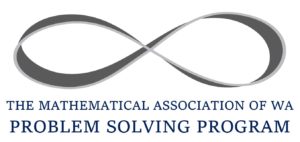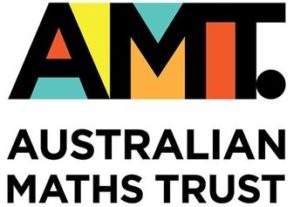 |
|
|||
The Mathematical Association of WA’s Problem Solving Program (PSP) has been in operation since it was developed in 1992 by Dr Nathan Hoffman.
Click here for Dr Hoffman’s rationale
The program provides mathematics problem-solving classes for able mathematics students aged 10 to 15, though highly able students of a younger age can apply. Each year over 400 students are enrolled in the program.
The problem solving program challenges students to:
- Develop mathematical problem-solving skills
- Develop skills in the logical and effective presentation of solutions
- Enrich students’ knowledge of mathematics
The program is designed for children who have a passion and enthusiasm for mathematics, and a determination to persist with challenge.
Each class within the program has a Challenge Stage in the first semester and an Enrichment Stage in the remaining semester that runs in partenership with Maths for Young Australians by the Australian Maths Trust
Information Video
MAWA’s problem solving program will operate face-to-face and live online. Classes run during school term time. No classes are held during school holidays.
Praeger
Newton
Dirichlet
Euler
Professor Praeger was the first pure mathematician appointed an Australian Research Council Federation Fellow and the first WA recipient of the Prime Minister’s Prize for Science.
The Praeger course consists of fortnightly classes for mathematically able students in Years 4 – 5. The focus of the course is on working systematically and step-by-step approaches to problem solving. Students participate in AMT’s Primary Challenge and Praeger Enrichment competition.
English mathematician and physicist Sir Isaac Newton is recognised as the founder of infinitesimal calculus (alongside Gottfried Wilhelm Liebniz).
The Newton course consists of weekly classes for mathematically able students in Years 5 – 6. Students will explore a range of topics including estimation, polyhedra, divisibility and number patterns. Students will also participate in AMT’s Junior Challenge and compete in the Newton Enrichment stage.
Peter Gustave Lejeune Dirichlet was a German mathematician best known for his work on the Pigeonhole Principle.
The Dirichlet course consists of weekly classes for mathematically able students in Years 6 – 7. Students will explore a range of mathematical topics including tessellations, number patterns, arithmetic in different bases and recurring decimals. In addition, students will participate in the AMT’s Junior Challenge and complete the Dirichlet Enrichment stage.
Leonhard Euler was a Swiss mathematician who founded the studies of graph theory and topology.
This weekly course is designed for mathematically able students in Years 7 – 8. Students will explore a number of significant topics in mathematics including prime numbers, arithmetic sequences, modular arithmetic and counting techniques. In addition, students will participate in AMT’s Junior Challenge and compete in the Euler Enrichment stage.
Gauss
Noether
Polya
This course is named after German mathematician Carl Friedrich Gauss. Gauss was a child prodigy known for his work in both mathematics and physics.
The Gauss course is designed for mathematically able students in Years 8 – 9. Students enrolled in this course will explore a range of mathematical topics including similarity, Pythagoras’ theorem, Diophantine equations, counting techniques and modular arithmetic. Students will also participate in AMT’s Intermediate Challenge and compete in the Gauss Enrichment stage. Students are encouraged and supported to participate in other mathematics competitions.
Born into a Jewish family, German mathematician Emmy Noether moved to the United States when Germany’s Nazi government dismissed Jews from university positions.
The Noether course is a weekly program designed for mathematically able students in Years 9 – 10 and includes a focus on algebra, sequences and series, number bases, modular arithmetic, circles and tangents. Students enrolled in the Noether course will also explore methods of proof. They will participate in AMT’s Intermediate Challenge the compete in the Noether Enrichment stage.
Hungarian-born mathematician George Polya is best known for his work on heuristics and problem solving while working as a Professor at Stanford University.
The online Polya course is designed for highly able students in Year 10. Students enrolled in course will explore a number of advanced mathematical topics including: symmetric polynomials, geometry, inequalities, functional equations, number theory, counting techniques and graph theory. Students enrolled in the course will also participate in AMT’s Intermediate Challenge and compete in the Polya Enrichment stage.
1) BY APPLICATION
MAWAPSP applications for new students for 2026 are now open.
Applications close 4pm 30 September 2025.
MAWA is holding a PSP Application Workshop for new students wanting to apply for 2026. More information can be found using the below links. Places are limited so please register quickly if you would like to take part.
PSP Application Workshop – Primary Only
PSP Application Workshop – Open
2) RE-ENROLMENT
Re-enrolments for 2026 (2025 students) will open in mid October 2025.
Re-enrolments are accepted provided a student’s performance throughout their time in the program has met a sufficient standard.
At the time of re-enrolment you will need to pay your fees for 2026 to ensure a place in the program.
3) BY INVITATION
Students who perform at an exceptionally high level, Prize winner or High Distinction, in the 2025 Australian Mathematics Competition (AMC) may be offered a place in the 2026 year’s program. A letter of invitation will be sent to your child’s school in mid-November and the school will pass this onto your child to bring home. Once you receive the letter you will be able to secure a position in the 2026 program.
Here is an online information presentation for new/existing parents/ students here.
MAWA uses Moodle as its Learning Management System for the Problem Solving Program. During the enrolment process, you will need to supply a parent email address and a student email address. These email addresses will be used as the primary means of communication for information regarding the problem solving program.
A guide on how to login to Moodle, access your course and reset your password can be downloaded here
You can access Moodle here.
Resetting your password for Moodle
Please click on “Forgot your username or password?” after clicking on “Log in” on the Moodle (https://mawapsp.edu.au/) website and follow the instructions.
Please do not contact the MAWA office to reset your password as we are unable to do so.
Also your Moodle username and password will not give you access to the MAWA Website.
The Mathematical Association of Western Australia and The Australian Maths Trust are pleased to provide several scholarship opportunities to cover tuition fees for the current year in the Mathematical Association of WA Problem Solving Program (MAWAPSP).
Hoffman Primary and Hoffman Secondary Scholarships
The Hoffman Primary Scholarship is open to all students up to and including Year 6 regardless of family income, school location and attainment level.
The Hoffman Secondary Scholarship is open to all students enrolled in secondary school, or studying mathematics at Year 7 or higher, regardless of family income, school location and attainment level.
Australian Maths Trust (AMT) Scholarships
The AMT Scholarships are open to eligible primary or secondary students who attend a school with an Index of Community Socio-Educational Advantage (ICSEA) of below 1000 or reside in regional WA. Your child’s school ICSEA can be found on the My Schools Website https://www.myschool.edu.au/
If you are interested in applying for either of these scholarships, please fulfill the following:
- Assist your child in completing the nomination form and
- Include copies of the requested documents
Download the nomination forms below.
(Nomination forms will be available from April 2025)
2025 Hoffman Primary Scholarship Nomination Form
2025 Hoffman Secondary Scholarship Nomination Form
2025 AMT Scholarship Nomination Form
Please note: Applications are to be a maximum of 6 pages.
Scholarship applications must be submitted via email, by post or hand delivered to the MAWA office by 4pm Friday 18 July 2025.
Email: office@mawa.edu.au
Office address:
The Mathematical Association of Western Australia
12 Cobbler Place
MIRRABOOKA 6061
Adrian (2005 Beazley Medal winner) Scotch College:
I would like to take this opportunity to express my gratitude for the exceptional teaching I received in your Mathematics Problem Solving Programme. I found it to be an enriching and intellectually stimulating experience which helped me to achieve academic success and develop lifelong skills . . .
. . . your programme is highly beneficial, advancing students beyond the school curriculum while enabling us to approach challenges, mathematical or otherwise, with confidence. Just as importantly, it cultivates an appreciation of the intricacies of mathematics and hones the faculty of logical thought. (June 2014)
Jasmine (WAMPSP student 2008 – 2012)
This course taught me resilience and to not give up. It showed me how to approach the unknown, how to deal with not understanding a concept, and this grit is something that I just don’t think I would’ve learnt without the extension that Dr Hoffman’s class offered. Looking back at these classes, I see that they had a massive impact on my life. I was able to realise my strengths in the STEM areas, and trusted in my abilities to take on more challenging topics in high school and beyond. (July 2019)
The image below celebrates an alumni of the program:

Contact Us
For general inquiries about the program please email: office@mawa.edu.au
Mailing address:
MAWA Problem Solving Program
12 Cobbler Place
Mirrabooka WA 6061
